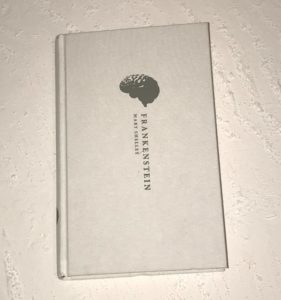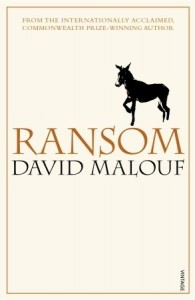 Two hundred years ago, a book was published that literally changed my life. It is very rare to say that a book could have such a life changing effect on someone but in my case it is actually true. It happened about nine years, without going into too many details, I was not happy with myself. I was directionless and went through a self-destructive phase. While it was not just literature that saved me, I do have to give credit to my wife as well. Books ignited the spark in me that made everything else click into place. I am a very different person to who I was back then, I suddenly turned into a passionate and voracious reader thanks to Mary Shelley’s Frankenstein.
Two hundred years ago, a book was published that literally changed my life. It is very rare to say that a book could have such a life changing effect on someone but in my case it is actually true. It happened about nine years, without going into too many details, I was not happy with myself. I was directionless and went through a self-destructive phase. While it was not just literature that saved me, I do have to give credit to my wife as well. Books ignited the spark in me that made everything else click into place. I am a very different person to who I was back then, I suddenly turned into a passionate and voracious reader thanks to Mary Shelley’s Frankenstein.
It all started with when I discovered a little radio show called The Culture Club by Craig Schuftan. This show explored similarities between music and the art world. This peaked my interest and I started reading his book Hey, Nietzsche! Leave Them Kids Alone which looked at the similarities modern rock had with the Romantic period. Looking at bands like My Chemical Romance, Weezer, and The Smashing Pumpkins. The Romantic poets were the rock stars of their time, and their angst felt very similar. I knew I had to read Frankenstein and it all fell into place from there. Reading this classic, I quickly identified with the creature Victor Frankenstein had created. Although his pain was far more real than my angst, I have people who care about me, I was just an outsider.
My feeling of not belonging in this world was similar to what I was reading in this novel. Frankenstein was the first book I picked up because of Hey, Nietzsche! Leave Them Kids Alone and I did that because of one of my favourite Smashing Pumpkin songs, Disarm. In this song Billy Corgan fantasises about cutting his parents limbs off, because he hated them for bring him into the world.
“It’s about chopping off somebody’s arms.. The reason I wrote Disarm was because, I didn’t have the guts to kill my parents, so I thought I’d get back at them through song. And rather then have an angry, angry, angry violent song I’d thought I’d write something beautiful and make them realize what tender feelings I have in my heart, and make them feel really bad for treating me like shit. Disarm’s hard to talk about because people will say to me ‘I listen to that song and I can’t figure out what it’s about.’ It’s like about things that are beyond words. I think you can conjure up images and put together phrases, but it’s a feeling beyond words and for me it has a lot to do with like a sense of loss. Being an adult and looking back and romanticizing a childhood that never happened or went by so quickly in a naive state that you miss it.” — Billy Corgan on Disarm (RAGE, 1993)
This tenderness that Corgan reflects in Disarm is not dissimilar to the creatures own feeling. One of the most common themes I get while re-reading Frankenstein is this feeling of how society treats people who are different. For the creature, he came into this world and was immediately rejected by his creator. He was also rejected by everyone he encounters. He pleads with Victor Frankenstein to create him a companion; that is all he wants. He came into this world with love in his heart, but was denied it at every turn. Most of my early reading life focused on this idea of an outsider and how the world treated them. Books like American Psycho, Perfume by Patrick Suskind and the Dexter Morgan series all deal with these monstrous characters and how the world and their situation has shaped them. I found comfort in the exploration of the outsider in literature. The idea of blaming society for the way I was felt good, but with my new found thirst for literature came a better understanding of myself and the way the world works. Nowadays I like to read transgressive fiction because it is very different to my own life but while writing this article I cannot help but wonder if it was originally because I identified with them more than with a protagonist that gets a happy ending.
Re-reading Frankenstein again I cannot help but reflect on how different each reading experience really is. There are so many different ways to read Frankenstein, commonly there is the idea of science taking things too fast, or the dangers of playing God. Or perhaps Mary Shelley wants to simply say actions have consequences. When I studied Frankenstein in university I knew a little more about Mary Shelley, so I was looking at Frankenstein with some context.
Before Shelley wrote Frankenstein she had given birth to a daughter, two months premature. This daughter only lived a few weeks, a year later she gave birth to William Shelley. After the birth of her son she suffered from postnatal depression. The birth of William happened a few months before the story of Frankenstein was conceived, so it wasn’t too surprising to see William’s name in the novel. William was Victor Frankenstein’s youngest brother, who was strangled to death by the monster. So, either Mary Shelley’s depression manifested an urge to strangle William, or there is something far more complex happening in the novel. Looking at the story arc of William’s death, we know a young woman is accused of the murder. So maybe there is something here to be said about the mother-child relationship, especially with the idea of maternal guilt and thinking about her lost daughter.
Maybe you want to explore this idea of creating life without the need of a woman, or maybe this is just a parody of creationism. Even the subtitle of ‘the Modern Prometheus’ means you can look at the similarities between this novel and Greek mythology. Paradise Lost by John Milton is another piece of literature that is often explored in relation to Frankenstein. I am struck by how many different ways we can look at Frankenstein and as I develop my own skills in analysing literature, I often return to this classic and see what I can find with a re-read. Mary Shelley is a very interesting person to read about, and I have picked up a few biographies on her, including The Monsters: Mary Shelley and the Curse of Frankenstein by Dorothy & Thomas Hoobler and Young Romantics: The Shelleys, Byron and Other Tangled Lives by Daisy Hay (my next one will be Romantic Outlaws: The Extraordinary Lives of Mary Wollstonecraft and Her Daughter Mary Shelley by Charlotte Gordon). I find knowing the context only enhances my enjoyment of a book. I know people read for many different reasons but for me it is all about educating and improving myself. I do read for escapism but I tend to enjoy a novel more if there is some interesting themes to explore.
For someone who has only been a reader since 2009, I feel like I have a lot of literature to catch up on but I still feel the urge to revisit my favourites over and over again. I started off wanting to re-read Frankenstein every year but that quickly faded away, but I still like to revisit the text, it still remains one of my favourites. Did you know there are two different editions of Frankenstein out there? The book was originally published in 1818 but it was then republished in 1831 with revisions made by Mary Shelley. While the 1831 edition is commonly the one that gets published, I like to switch between the two different editions.
I have lost count of how many copies I own of Frankenstein. I own some beautiful editions including a new hardcover of the 1818 text from Oxford World Classics which I am currently reading. The book means so much I have copies all over the house, and one at work. Plus there is the ebook and audiobook edition I can access from my phone at any time. Literature plays such a huge part of my life, even I have trouble imagining my life without them. Frankenstein played a big part in my own transformation. All I can hope is that people continue to find something in this piece of classic literature. I will be re-reading this for years to come and I hope it continues to make an impact to people over the next two hundred years.
This beautiful edition of the 1818 text of Frankenstein was sent to my by Oxford World Classics
This review was originally published in the literary journal The Literati

 Title: Ransom (
Title: Ransom ( Title: The Sorrows of Young Werther (
Title: The Sorrows of Young Werther ( Title: My Life as a Fake (
Title: My Life as a Fake ( I just read an article from Time-Online called ‘
I just read an article from Time-Online called ‘